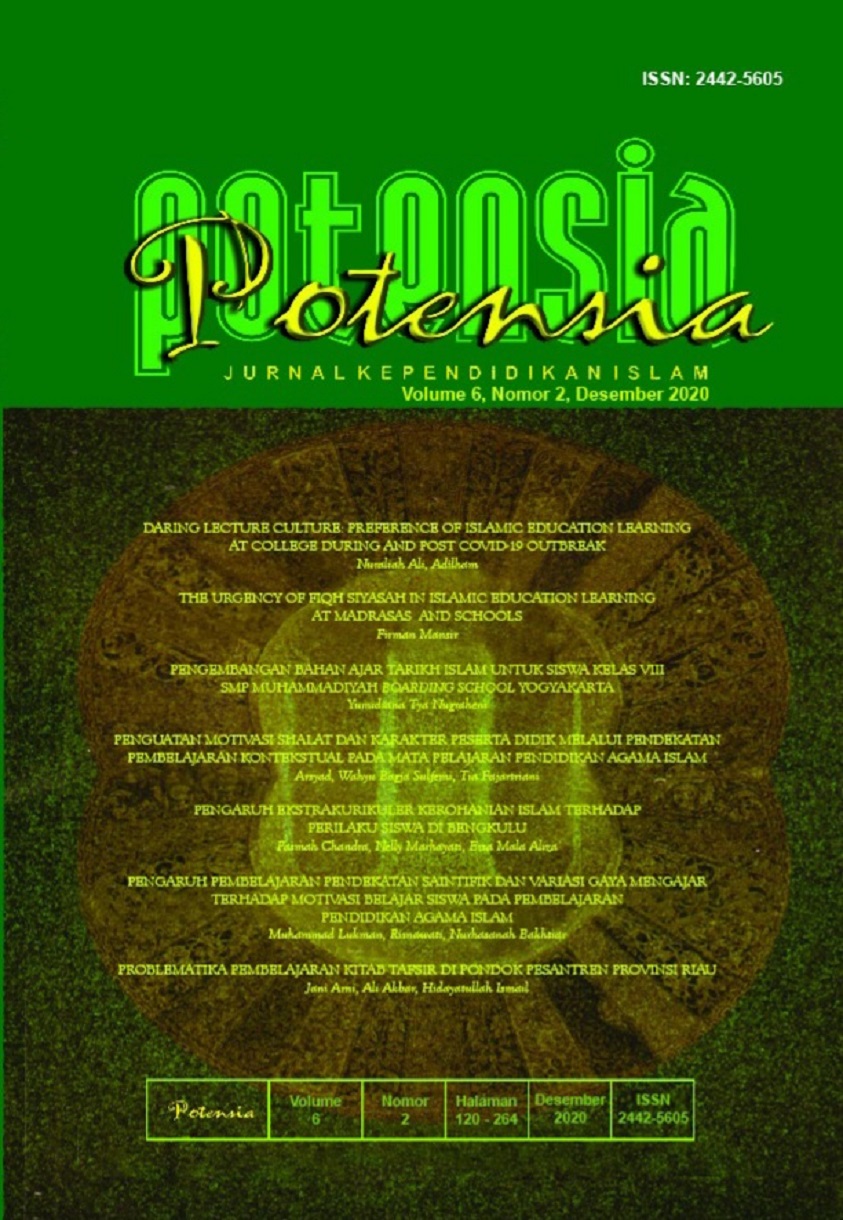THE URGENCY OF FIQH SIYASAH IN ISLAMIC EDUCATION LEARNING AT MADRASAS AND SCHOOLS
DOI:
https://doi.org/10.24014/potensia.v6i2.11242Keywords:
fiqh siyasah, Islamic education, school, madrasaAbstract
This study aims to explain some material descriptions of fiqh siyasah covering four things, namely an explanation of the theory of fiqh siyasah in madrasas and schools, factors of fiqh siyasah, the urgency of fiqh siyasah in madrasas and schools and implementation of fiqh siyasah in madras and schools. Therefore, this study explores the theory of fiqh siyasah in madras and schools. The author describes the concept of fiqh siyasah in science, which discusses matters for the affairs of the State. The people of various forms of regulations, laws, and policies. That have been made by leaders who agree with or are in line with the basic teachings of the Sharia in order to realize the benefit of the people. In its implementation, the concept of fiqh can be seen in madrasas so that a comprehensive level of inculcating these fiqh values can be achieved. Therefore, this is very important to be taught to average students. If at the previous school level, students were only required to be able to understand the existing doctrines in fiqh. According to one or more schools, then in this madrasas an understanding of a difference of opinion or view in the prediction of fiqh learning is given. In addition, students must also be able to implement the science of fiqh. In everyday life so that, this becomes a form so that the goals of Islamic education are achieved.Downloads
Published
2020-12-26
How to Cite
Mansir, F. (2020). THE URGENCY OF FIQH SIYASAH IN ISLAMIC EDUCATION LEARNING AT MADRASAS AND SCHOOLS. POTENSIA: Jurnal Kependidikan Islam, 6(2), 142–154. https://doi.org/10.24014/potensia.v6i2.11242
Issue
Section
Articles
License
POTENSIA: Jurnal Kependidikan Islam operates an Open Access policy under a Creative Commons Attribution 4.0 International License. Authors who publish with this journal agree to the following terms:
- Authors retain copyright and grant the journal right of first publication with the work simultaneously licensed under a Creative Commons Attribution 4.0 International License that allows others to share the work with an acknowledgement of the work's authorship and initial publication in this journal.
- Authors are able to enter into separate, additional contractual arrangements for the non-exclusive distribution of the journal's published version of the work (e.g., post it to an institutional repository or publish it in a book), with an acknowledgement of its initial publication in this journal.
- Authors are permitted and encouraged to post their work online (e.g., in institutional repositories or on their website) prior to and during the submission process, as it can lead to productive exchanges, as well as earlier and greater citation of published work.

